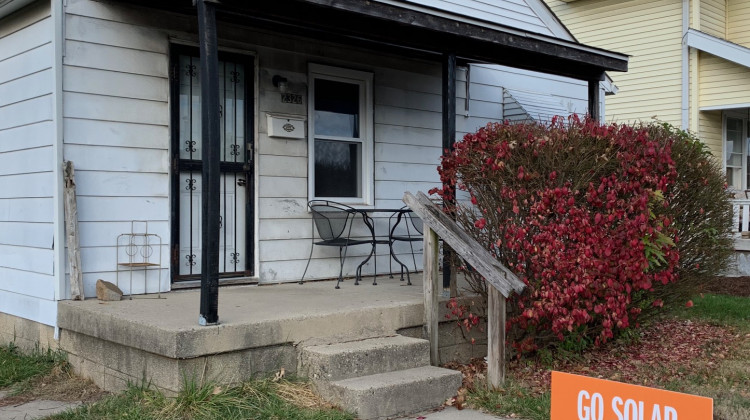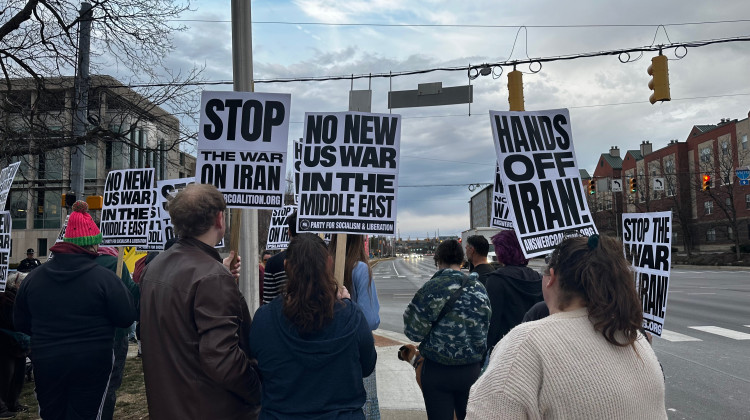
This home in the Hillside neighborhood is the first to have solar panels installed through the program. (Jill Sheridan WFYI)
A pilot program that provides solar panels for moderate to low income families celebrated its first installation Tuesday.
The move to increase solar energy equity in Indianapolis is led by the city’s Office of Sustainability and nonprofit Solar United Neighbors, SUN.
SUN Indiana Program Director Zach Schalk said their mission is to help residents go solar.
"We do that so we can create a 21st century energy system that is clean, just and equitable, that distributes benefits and control to local communities," Schalk said. "And we think rooftop solar should be at the cornerstone of that energy system."
Carmela Thomas home on the near northside is the first to receive the solar panels free of charge. Before applying for the program, she had assumed solar energy was out of reach.
"I’m looking forward to my light bill being zero to nothing and eventually them paying me in credits," Thomas said.
The city plans to outfit four more homes before the end of the year. Indianapolis Mayor Joe Hogsett said he’s proud of the pilot program that promotes inclusivity.
"Helping homeowners achieve energy independence," Hogsett said.
The initiative is part of Thrive Indianapolis, the city’s first sustainability action plan. Indianapolis has a goal to have 20 percent of its energy coming from renewable sources by 2025.
 DONATE
DONATE








 Support WFYI. We can't do it without you.
Support WFYI. We can't do it without you.